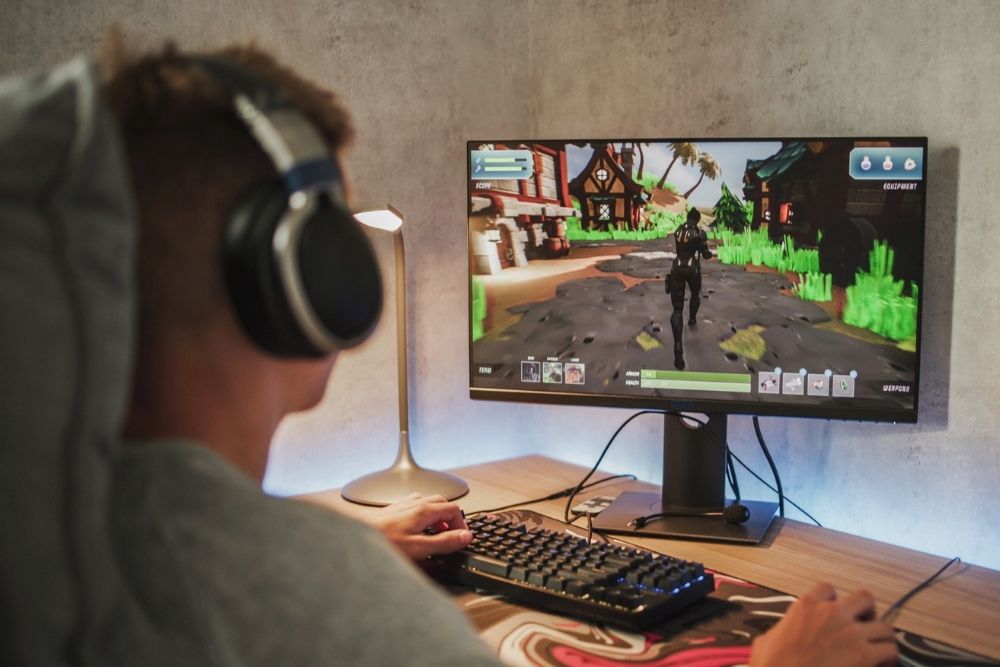Maybe you’ve noticed your teenager glued to a video game controller for hours, or you’re starting to wonder if your own gaming sessions are getting out of hand. It’s easy to shrug it off, but video game dependency—what’s now called gaming disorder—is a real thing. And even though St. Joseph Institute doesn’t specialize in gaming treatment, our outpatient services in Wexford, PA, can still help you or someone you care about work through the emotional or behavioral patterns that make it hard to log off.
Keep reading to find out what gaming disorder really means and what you can do about it today.
What Is Gaming Disorder?
Gaming disorder is the term experts use for when gaming stops being fun and starts taking over. It’s officially recognized by the International Classification of Diseases (ICD-11), which lists health conditions worldwide. That means there’s enough research to say it’s real and worth understanding.
But having a gaming disorder doesn’t mean you’re simply obsessed with gaming. It means you feel like you can’t stop, or that your life revolves solely around gaming rather than everything else. And while it doesn’t cause physical withdrawal in the same way that sufferers of substance use disorder (SUD) might experience when they quit, it can quietly chip away at your energy, focus, and relationships until life starts to shrink around a screen.
Here’s what that might look like in everyday life:
- You plan your day around gaming or drift off thinking about your next session.
- You tell people you’re doing homework or working, but secretly squeeze in more hours.
- Sports, music, or hanging out with friends used to make you happy, but now they feel dull compared to gaming.
- You’d rather stay online with gaming friends than spend time face-to-face with loved ones or getting to know new people.
- When someone interrupts your game or limits your time, frustration hits hard.
- You turn to gaming when real life feels stressful or awkward because it feels safer.
- Even though your grades may slip, your sleeping patterns change, or the gaming triggers relationship tension, you keep logging on.
How Do You Treat a Video Game Disorder in Pennsylvania?
Thankfully, gaming disorder can absolutely get better with the right treatment. At St. Joseph Institute, many of the same tools used for SUD behavior-related challenges can help you find balance again.
- Cognitive Behavioral Therapy (CBT). CBT helps you recognize what’s going on in your mind when you reach for a game. Maybe it’s stress or loneliness that’s triggering you. Working with a therapist can help you see those patterns clearly and replace them with healthier habits.
- Family Counseling. Family counseling helps give your whole family a voice. It’s never about casting blame. Rather, it’s about helping families talk, set limits that make sense, and rebuild trust as a unit. Parents, partners, and siblings can all learn ways to support progress without nagging or fighting.
- Online Support Groups. Online support groups can make all the difference when you’re trying to cut back on gaming. Talking with others who’ve been there can help you feel understood or even give you new tricks for managing your screen time.
Gaming should add joy to your life, not replace it. If you notice it’s starting to eat up more space in your life than you want, that’s your cue to get a little extra help. These small steps can help you get started before the gaming gets too overwhelming:
- Use timers or built-in app settings to limit how long you play each day.
- Keep your gaming gear away from your bedroom so that it’s easier to shut down the console before bed.
- Try to unwind in other ways. Exercise, music, cooking, or time outdoors can give you that same sense of reward without pulling you into a marathon session.
- Keep yourself connected to the physical presence of others. Even a quick catch-up with a friend can pull you out of your screen bubble and help you reset.
Enter Therapy For Addiction Disorders at St. Joseph
Gaming disorder might not look like other kinds of substance-based dependencies, but the struggle to stop is just as real. Plus, if your or a loved one’s gaming issues overlap with a substance use disorder, you can get care for both through co-occurring substance use treatment with us in Port Matilda.
We offer space and guidance to help you build healthier routines and reconnect with what matters most. Contact us today to receive help from a supportive team, pinpoint the right mix of therapy, and jumpstart some honest reflection that can help you find your balance—you may even discover areas of life that bring you just as much joy (if not more) as gaming.


